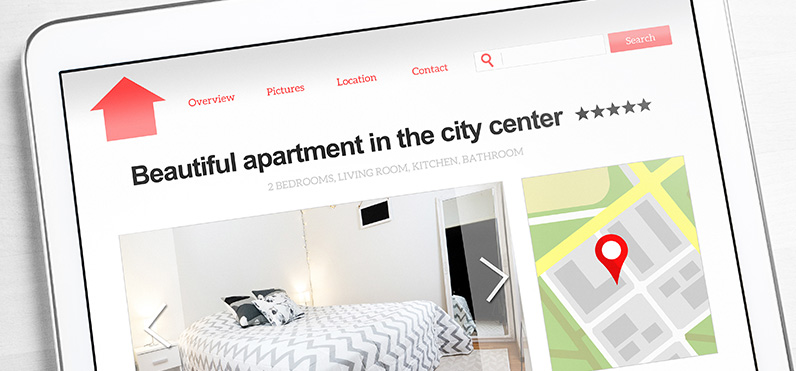May 30,2018
If you resemble the modern-day traveler, you will likely at least consider the idea of staying at an Airbnb-like rental on your next vacation or work trip. If you own your home in or around a city or other another attractive destination, you may have given consideration to renting your house or condominium unit on a short-term basis, either while out of town yourself or during a peak travel season. Often times Airbnb offers a cost-effective alternative to a typical hotel and provides income to the homeowner to offset property costs. But for all the convenience Airbnb offers, both to the guest as well as the owner, many of us have heard at least one horror story where an Airbnb renter caused substantial damage to the property, held wild parties, or engaged in some form of criminal activity. While the incidences of such behavior are without question the exception rather than the rule, many Airbnb guests engage, often times unknowingly, in conduct which is either bothersome to neighbors or in violation of a condominium’s rules and regulations.
But for all the convenience Airbnb offers, both to the guest as well as the owner, many of us have heard at least one horror story where an Airbnb renter caused substantial damage to the property, held wild parties, or engaged in some form of criminal activity.
When a guest rolls into town for one or two nights it is safe to assume that he or she is not taking the time to review the association’s bylaws and rules and regulations, even on the rare occasion where those materials are provided to the guest in the first instance. As a result, the guest is likely to be unaware that smoking is prohibited in the courtyard, what the proper trash policies are, and where he or she may legally park in the common area parking lot. If this occurs only once or twice a year it may be viewed by some as a minor inconvenience to the other unit owners, however if there is frequent turnover and new guests are arriving on a daily or weekly basis, that inconvenience quickly evolves into a substantial interference with the ability of unit owners to peacefully enjoy their homes and common areas.
Associations are rightly concerned about a transient guest’s lack of ties to the community, especially given that in most instances the guest is granted unfettered access to all the common areas of the condominium which may include hallways, elevators, basements, roof decks and recreational facilities without supervision from the actual owner from whom the guest is renting. This presents a legitimate safety concern for other unit owners, especially when a unit is rented by many different people each week or month. The constant presence of unfamiliar faces just outside the door of your home is likely to unnerve most people, however a condominium association is not, and cannot be in the business of evaluating and monitoring each and every guest of a unit owner.
While state and local governments wrestle with regulatory, zoning, safety and taxation issues which short-term rentals present, condominium associations are struggling with their own set of issues related to the disruption and safety concerns transient guests present to unit owners. While many condominium governing documents contain restrictions on a unit owner’s ability to lease or otherwise rent his or her unit, the majority of these restrictions are boilerplate and do not contemplate the rapidly developing market for short-term transient rentals with the proliferation of Airbnb and similar type services. Standard leasing restrictions in condominium documents may prohibit rentals for less than a prescribed period of time (six months to one-year is common), prohibit rentals of anything less than the entire unit, and may require that a copy of the lease be provided to the Board. However, even when an association’s governing documents adequately restrict transient rentals there is still a concern as to whether the fine structure within an association’s documents provides a sufficient deterrent to unit owners considering renting their unit in violation of the condominium documents. For instance, many condominium documents establish a graduated fine structure per offense (e.g. $25 fine for the first offense; $50 for the second; $100 for the third, etc.). Unit owners considering short-term rentals of their unit, especially in Greater Boston, can expect nightly rental prices in the hundreds of dollars which, when weighed against a potential fine amounting to a fraction of their anticipated profit, do not provide much incentive to adhere to the requirements of the governing documents.
If a condominium association’s governing documents are silent on leasing guidelines and restrictions, the association must take steps to amend its documents to specifically address this activity or it will likely be without authority to regulate or enforce short-term rentals. Because such a provision operates to restrict what one may do with his her or her unit, an amendment to the master deed and/or bylaws will be required which requires a minimum percentage of unit owners (typically at least two-thirds) to vote in favor of such a restriction. Depending on the location and demographics of the ownership, this may prove to be a difficult endeavor if multiple unit owners favor the ability to rent their unit on a short-term basis.
Associations must also be cognizant of the implications unauthorized rentals have on Federal Housing Administration (“FHA”) guidelines. In addition to explicitly restricting transient rentals, defined by FHA as initial terms of less than 30 days, FHA regulations require that at least 50% of the units be owner- occupied (in limited instances this percentage may be lowered to 35% provided the project meets certain additional conditions established by FHA). If the total number of leased or rented units exceeds this threshold FHA may suspend or revoke the project’s eligibility which could have a drastic impact on the ability of prospective new owners to obtain financing through FHA as well as unit owners seeking to refinance using an FHA product. If an association does not have a handle on how many of its units are leased or rented at any one time, as they likely would not where multiple transient rentals are occurring without oversight or approval, the association may find it difficult to bring the project back into compliance with FHA guidelines.
If a unit owner’s use of Airbnb violates state or local laws, codes or ordinances such a violation could result in increased insurance premiums for the association as well as difficultly recovering on a claim under an existing policy. Condominium unit owners who occasionally rent their unit on a short-term basis may also be unknowingly violating their homeowner’s insurance policies by effectively converting their occupied unit into a rental property, which could result in a disclaimer of coverage by the insurance carrier if they become aware of the prohibited nature of the use. If a transient renter is injured on the common areas of the condominium, the Association could face trouble on a claim with its master insurance policy if it is discovered that the unit was being used as a for-profit rental. While the policymakers work to catch up to the everchanging issues created by short-term rentals one thing is clear: Airbnb-type services are for the most part here to stay. Condominium associations have the tools to regulate such activity, often times to a greater degree than state or local law, however associations should be proactive about addressing Airbnb-related concerns because retroactive efforts to address the short-term rental by unit owners may fall short if the existing condominium documents do not properly prohibit such rentals. Condominium unit owners would also be wise to consult with their association prior to listing their unit on Airbnb or else they run the risk of significant fines and exposure their association’s legal fees incurred in connection with the enforcement of the association’s bylaws and restrictions.


